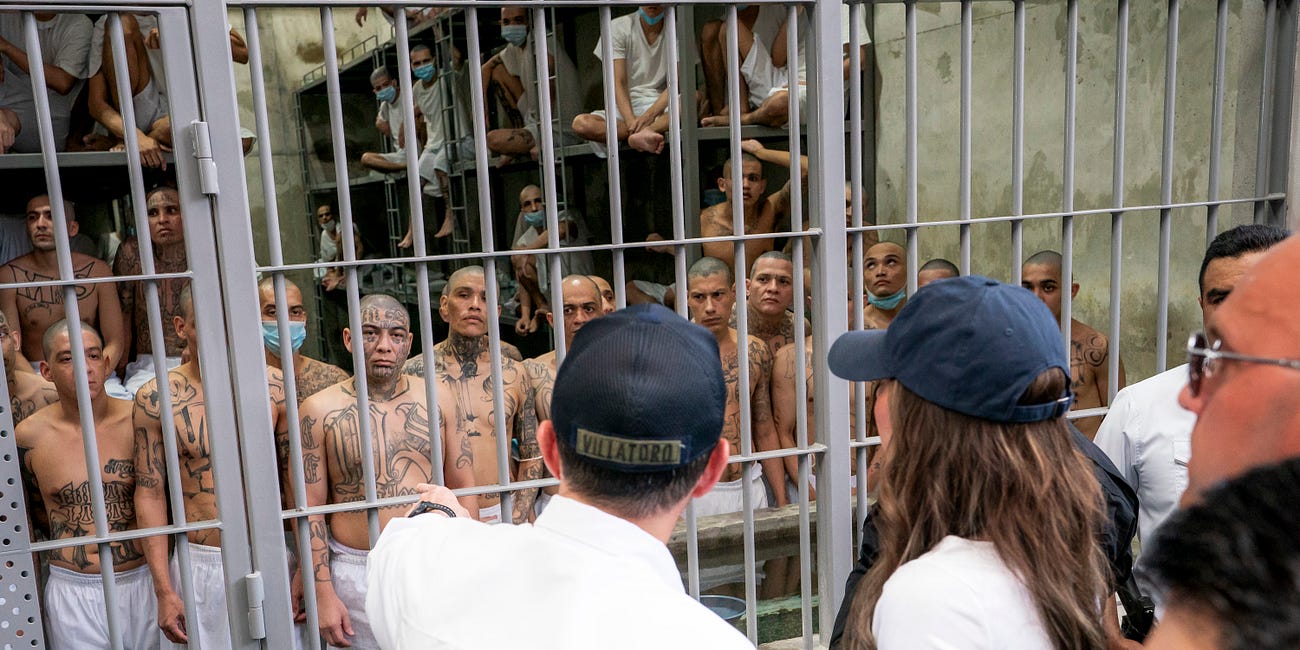ADDENDUM H: The Erosion of the “Entry Fiction” Doctrine and Its Strategic Exploitation
Olly Olly Oxen Free
Read Part 1 Here:
Invasion USA
Issue PresentedThanks for reading Autodidact Obsessions! Subscribe for free to receive new posts and support my work.
https://en.wikipedia.org/wiki/Shaughnessy_v._United_States_ex_rel._Mezei
I. Introduction
This addendum analyzes the systematic judicial dismantling of the entry fiction doctrine, a foundational legal tool for preserving border integrity and immigration sovereignty. This doctrine, rooted in Supreme Court precedent, once held that certain individuals physically present in the United States—but not lawfully admitted—could be treated as if they had never entered for legal purposes.
Its erosion has had profound consequences: undocumented migrants, hostile foreign actors, and even stateless persons now gain de facto constitutional protections—merely by crossing a line. The doctrine’s collapse enables hostile states and organized networks to exploit procedural rights once reserved for those within the civic compact.
---
II. The Entry Fiction Doctrine: Legal Origin and Purpose
The entry fiction allows immigration authorities to treat certain aliens, particularly those at ports of entry or detained shortly after unlawful entry, as not having entered the U.S. for legal purposes, even if physically present.
Key Case Law:
Shaughnessy v. United States ex rel. Mezei, 345 U.S. 206 (1953):
> “Aliens who have not entered the country—even if physically present—may be detained without a hearing.”
Knauff v. Shaughnessy, 338 U.S. 537 (1950):
> “\[T]he right to exclude aliens is inherent in sovereignty... It is not subject to judicial review except as provided by statute.”
Kwong Hai Chew v. Colding, 344 U.S. 590 (1953):
Qualified Mezei for lawful permanent residents but reaffirmed the broader doctrine’s application to unadmitted aliens.
---
III. Modern Judicial Erosion of Entry Fiction
Since the 1980s, and especially post-Zadvydas, courts have expanded constitutional due process protections to undocumented entrants, effectively nullifying entry fiction.
Turning Points:
Zadvydas v. Davis, 533 U.S. 678 (2001):
Recognized a due process right against indefinite detention, even for aliens already ordered removed.
Jennings v. Rodriguez, 138 S. Ct. 830 (2018):
Limited indefinite detention but did not reinstate entry fiction for procedural purposes.
Padilla v. Kentucky, 559 U.S. 356 (2010):
Implied that undocumented migrants enjoy constitutional protection in criminal sentencing and counsel contexts.
> Result: Physical presence, even for a day or an hour, now allows illegal entrants to invoke the full constitutional apparatus, eliminating sovereign discretion in the removal process.
---
IV. Strategic Consequences of Doctrinal Collapse
1. Asylum System Abuse:
Cartels and hostile actors instruct migrants to recite “magic words” (e.g., credible fear) upon crossing the border.
This strategy triggers mandatory adjudication, regardless of the person's threat profile or fraudulent intent.
2. Paramilitary or Terrorist Exploitation:
Once inside U.S. borders—even illegally—paramilitary operatives can delay removal for years through litigation under constitutional protections that never existed when entry fiction prevailed.
3. Weaponization of the Border:
Migrants now act as both humanitarian shield and legal lever: their presence compels judicial intervention and paralyzes executive enforcement.
The border ceases to function as a line of defense, and becomes a mere threshold to constitutional personhood.
---
V. Comparative Legal Disadvantage for U.S. Citizens
A U.S. citizen arrested under federal charges (e.g., for firearms, taxes, or controlled substances) has no automatic protection from pretrial detention.
An unlawfully present alien who enters the U.S. without authorization cannot be indefinitely detained, must receive individualized bond hearings (Rodriguez), and often cannot be removed due to country-of-origin policies (Zadvydas).
This inversion of enforcement equity is legally indefensible and politically unsustainable.
---
VI. Broader Constitutional Implications
The collapse of entry fiction:
Erodes Article II enforcement authority, turning all removal decisions into protracted litigation.
Overextends the Fifth Amendment beyond the boundaries intended by its framers.
Undermines the Suspension Clause (Art. I, Sec. 9) by requiring adjudication even in cases of coordinated infiltration or invasion.
Contradicts the structural premise of Mezei and decades of constitutional immigration law that distinguished between citizens, lawful entrants, and unlawful entrants.
---
VII. Conclusion
The entry fiction doctrine is not a historical relic; it is a constitutional mechanism to defend sovereign control over the nation's borders. Its erosion has replaced sovereign discretion with a procedural trap—one that foreign enemies now exploit with increasing sophistication.
If presence alone grants full constitutional standing, then the border is functionally erased, and with it, the nation’s ability to control who enters, who remains, and who is removed. This must be reversed—judicially or legislatively—before the Constitution becomes a passport for those who do not respect its obligations.



